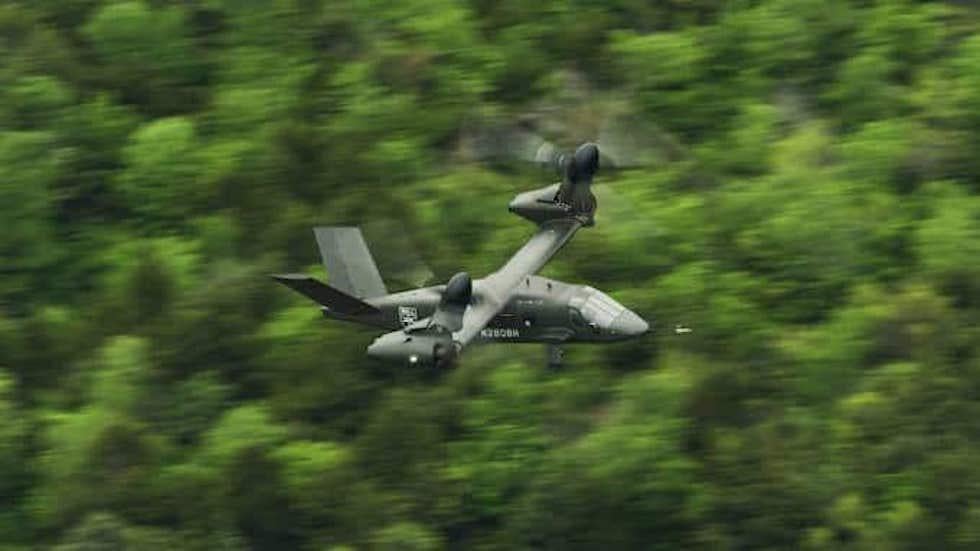Bell Expected To Find New FLRAA Fuselage Supplier After Boeing's Spirit Takeover

FARNBOROUGH—Following the closure of Boeing’s acquisition of Spirit AeroSystems, Bell is expected to look elsewhere for aerostructures work on its Future Long Range Assault Aircraft for the U.S. Army.
The move, a major shift in the supplier base for military rotorcraft, will either send Bell searching for another structures company to provide fuselages for the V-280—a program that will include at least 400-500 aircraft for the Army before international sales—or prompt the Amarillo, Texas-based company to look at doing the work in-house.
Multiple industry sources say the change will happen once the acquisition closes, expected in mid-2025. Spirit is likely to lay out the impacts of the change to its workforce in the coming weeks.
“Spirit has had a successful, 10-year partnership with Bell on this program and we will continue to work with them to deliver on our joint commitments,” Spirit spokesman Joe Buccino said.
Bell told Aviation Week it is not able to comment on relationships with its suppliers. Boeing declined to comment.
Bringing on Boeing as a supplier for the V-280 would have marked a return to the fraught relationship between the two companies on the V-22 Osprey. Bell and Boeing had a 50-50 teaming agreement for the U.S. Navy-led program, with Boeing building the fuselages. The equal partnership caused issues during development, concerning engineering and cost decisions.
That history led Boeing to avoid a tiltrotor design approach when it pursued the FLRAA plan. Boeing teamed with Sikorsky for the compound rotor SB-1 Defiant. With Bell beating the Sikorsky-Boeing team, Boeing had a chance to return to the FLRAA program through the Spirit acquisition.
While the bulk of the attention of Boeing’s acquisition has been on its commercial fallout, as Spirit builds the fuselage for the 737, some have raised concerns about defense impacts. Sen. Jerry Moran (R-Kan.) said Spirit’s defense work accounts for about 2,000 jobs in his state alone.
“I want to make certain that that work continues in Kansas, but I particularly want to make certain that we do not do anything in this acquisition that diminishes the capability of meeting our defense needs nationwide, or globally, by any kind of pause, any kind of disruption in the supply chain,” Moran says.
Spirit’s defense work accounted for about $789 million in sales in 2023. Other programs include Northrop Grumman’s B-21 Raider and Lockheed Martin’s CH-53K heavy lift helicopter.
“I want to make certain that in this merger—and I don’t know the details of this acquisition—but I want to make certain that companies who do defense with Spirit have a place to do that work, either with Spirit in the future or in Kansas otherwise,” Moran said. “But, setting aside my Kansas hat, our country and the challenges we face and the supply chain issues that we are trying to meet needs to make sure there’s no loss of work—no loss of time in providing the contractual obligations to those other companies.”
Bell, in a July 23 briefing to reporters here at the Farnborough Airshow, said it is awaiting the imminent announcement from the U.S. Army that FLRAA has received Milestone B approval, which will mark the start of engineering and manufacturing development.
